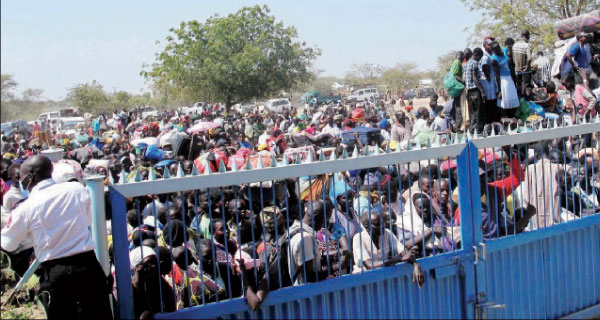×
The Standard e-Paper
Join Thousands Daily
 |
| Civilians seek refuge at United Nations Mission in Bor, South Sudan, yesterday. |
By TIMOTHY MACHI
A botched SPLM meeting set off the violence in South Sudan on Sunday evening, sources within the continent’s youngest independent State told The Standard yesterday.